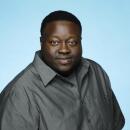
- Share via
On a Saturday in downtown Los Angeles, morning sun streamed through a window illuminating a room where Bobby Brown lay meditating with about 100 other Black men.
In unison, the brotherhood of Black men breathed in and out together as the sweet smell of palo santo incense rode the resonant sound bath waves through the room.
“Stress from this week, last year, [the] pandemic, childhood trauma, relationship issues, spirituality, spiritual warfare, depression, anxiety, uncertainty, being broke as hell,” sound healer Lee-Lonn Walker said to the group. “Release it.”
Brown, with his eyes closed and hands resting on his chest, lets out the latest exhale on his journey to heal himself, his family, his community and to end a legacy of generational trauma.
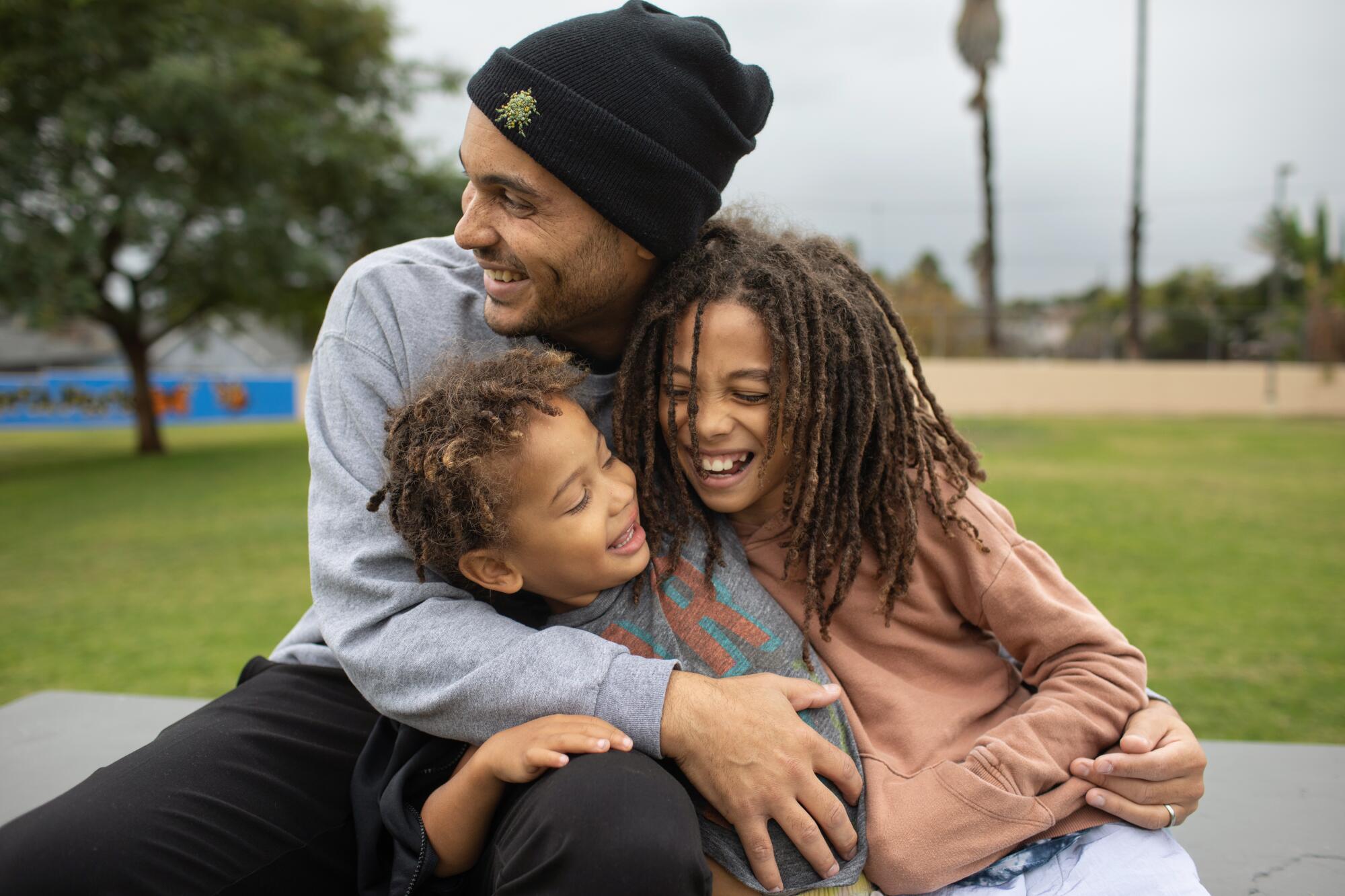
For centuries, Black men like Brown have been conditioned that they must always present in a certain way: as a “strong Black man,” a hard worker, a provider and the one who protects his family at all costs. When Black men, especially fathers, dare to unveil their struggles, they often disguise them with toxic masculinity.
At the same time, exploring your identity as a Black man in America is complicated.
Black men are inundated with headlines of stories of unarmed Black men brutally killed by police. Daily, Black fathers are forced to grapple with the thought of their child being the next George Floyd or Breonna Taylor. This hypervigilant focus on survival directly affects parents’ ability to foster a nurturing relationship with their children.
“Keep going, keep loving, keep being kind, keep forgiving. Pain will come, but you will overcome it. Stop worrying about the judgment of others and just continue to show up. You are loved.”
— Bobby Brown
Traditionally, an authoritarian parenting style is used by Black parents to protect their children as they grow up Black in America. They have conditioned their children not to express their feelings, especially their anger — which, in this country, can feel like an unsafe proposition.
Brown and his family are trying a different approach. For the last six years, the Inglewood 34-year-old has sought out mental health care and built a supportive community of Black fathers who lean on one another as they evolve as Black men and parents.
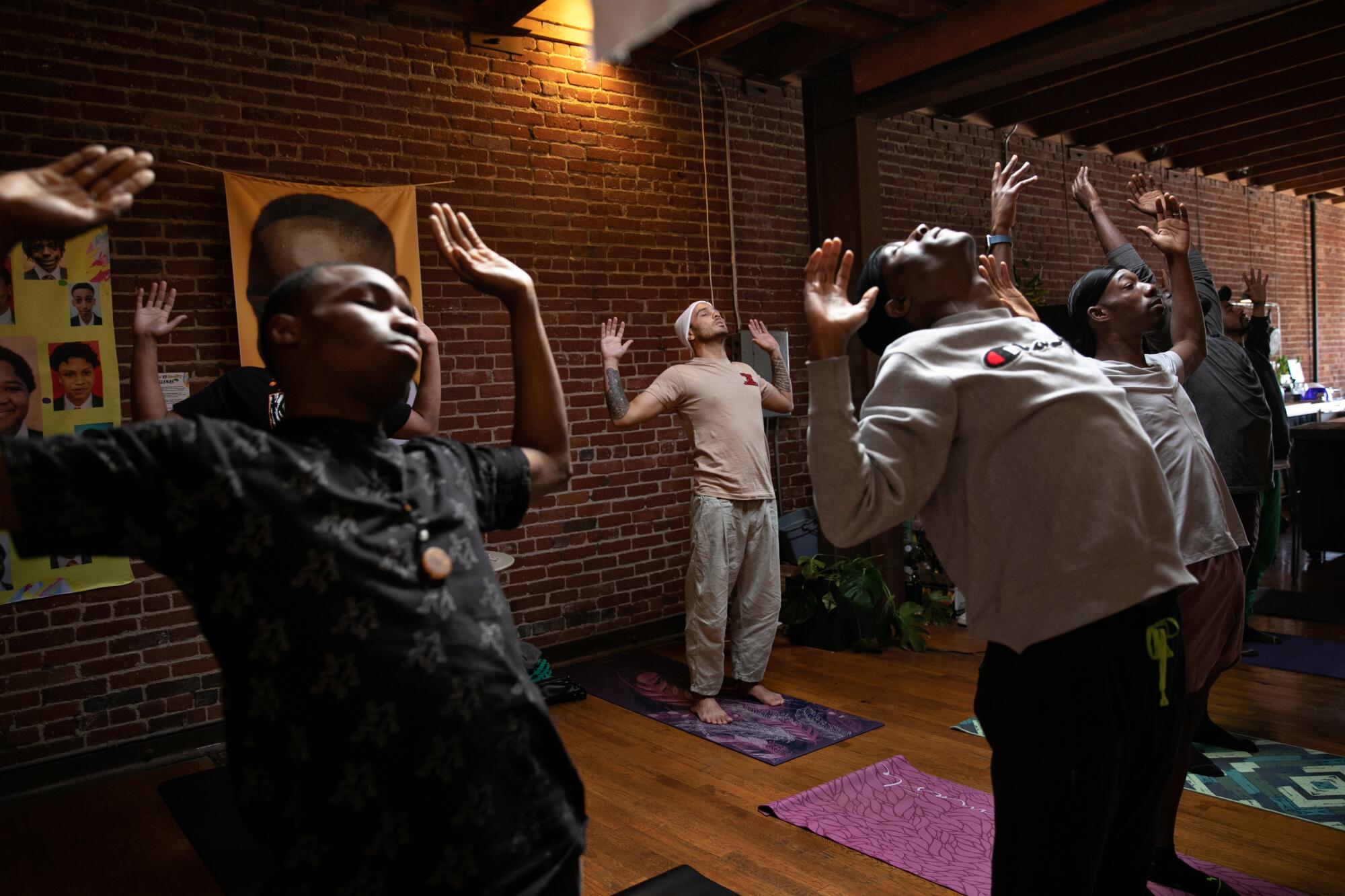
His journey has also included attending a growing number of Black-led mental health events in L.A. that focus on healing the whole person and the community.
“Redefining mental health care for Black communities is allowing Black people to pursue a full range of humanity, allow themselves to cry when it’s time to cry, to be strong when it’s time to be strong, as opposed to being this limited one-dimensional caricature, which is what I think most masculine folks feel like they have to perform as,” said Yolo Akili Robinson, founder and executive director of the national nonprofit Black Emotional and Mental Health Collective based in Culver City. “When you let that go, there’s an opportunity for transformation and healing for Black men and not just Black men, but all communities.”
Back at the men’s healing circle, Brown jumped right into the final exercise, a journal prompt: “What would you say to your 13-year-old self?” Legs crossed as he sat on the floor, Brown wrote feverishly.
“Keep going, keep loving, keep being kind, keep forgiving,” Brown wrote. “Pain will come, but you will overcome it. Stop worrying about the judgment of others and just continue to show up. You are loved.”
Childhood trauma is something that Brown has had to slowly unpack.
Brown’s biological father was never in his life, Brown said, and he and his mother struggled a lot on their own. As a result, he was placed in foster care with a stranger at age 3, he said.
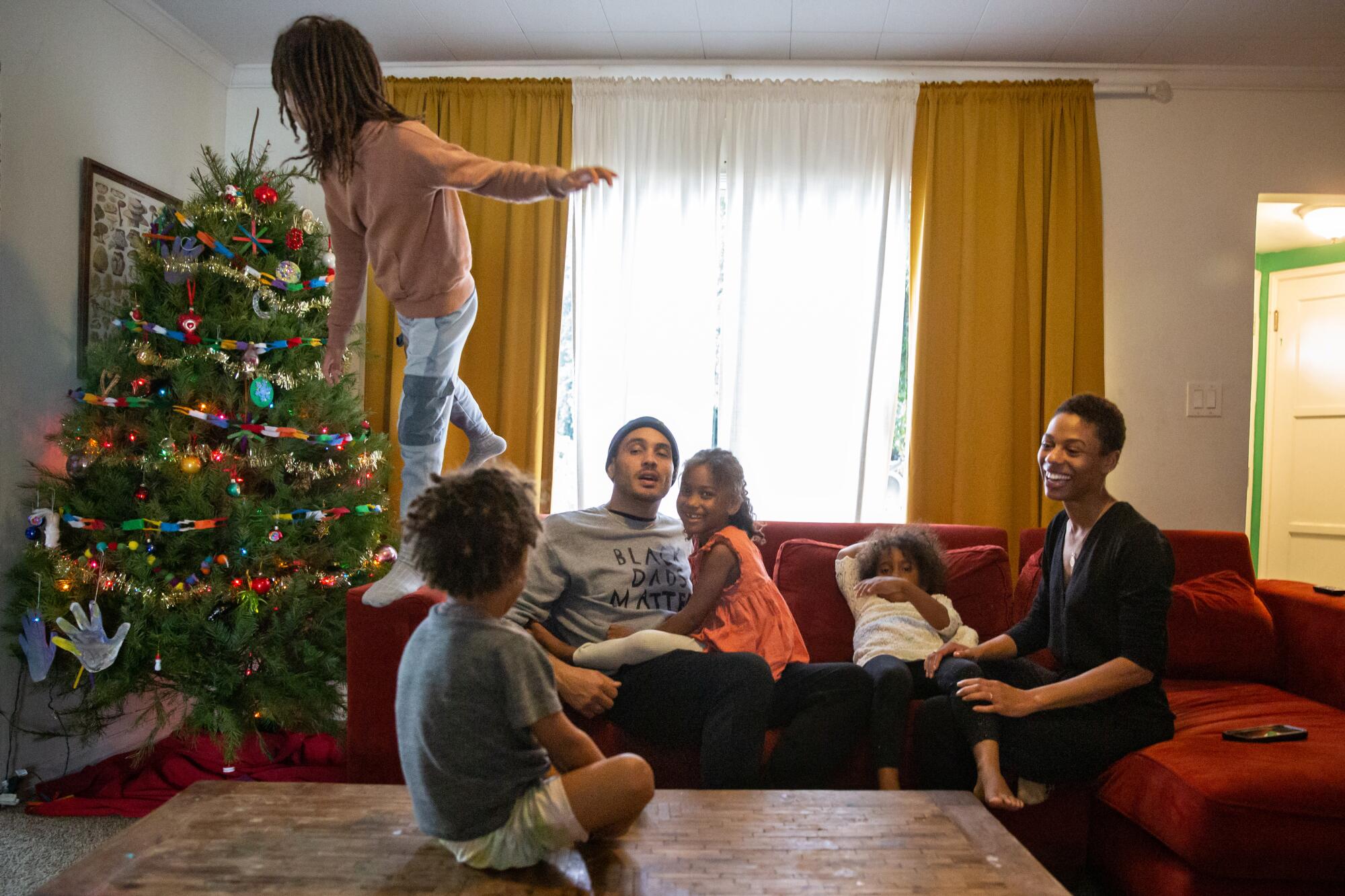
It wasn’t until Brown, already back with his mother, was 5 that he gained a true father figure, when his mother married his stepfather Gus. Brown remembers him as a man who led by example, was not too vocal but very loud in his presence.
In the 1990s, Brown’s stepfather worked in the financial services industry. He was the only Black person in the office.
“Oftentimes as Black men, we are expected to do many things and to take care of our own feelings and not give that to somebody else, but we know it’s helpful to have that space to be able to do that.”
— Psychologist Earl Turner, associate professor at Pepperdine University
Gus dealt with overt racism and microaggressions daily as he fought to gain a foothold in the mostly white industry. The pressure to constantly prove his worth to his white colleagues and bosses left him little energy to come home and parent.
Brown said his stepfather always seemed sad, stressed, angry or depressed.
“I saw a lot of his day-to-day mental exhaustion that resulted in him coming home, shutting down, drinking beer and kind of just watching TV,” Brown said.
As a kid, Brown did not understand the complexity of Gus’ internal struggles. In his adolescent mind, he assumed his stepfather’s irritation, stress levels and unhappiness were all because of him in some way. And Brown could never figure out what he could do to make Gus happy.
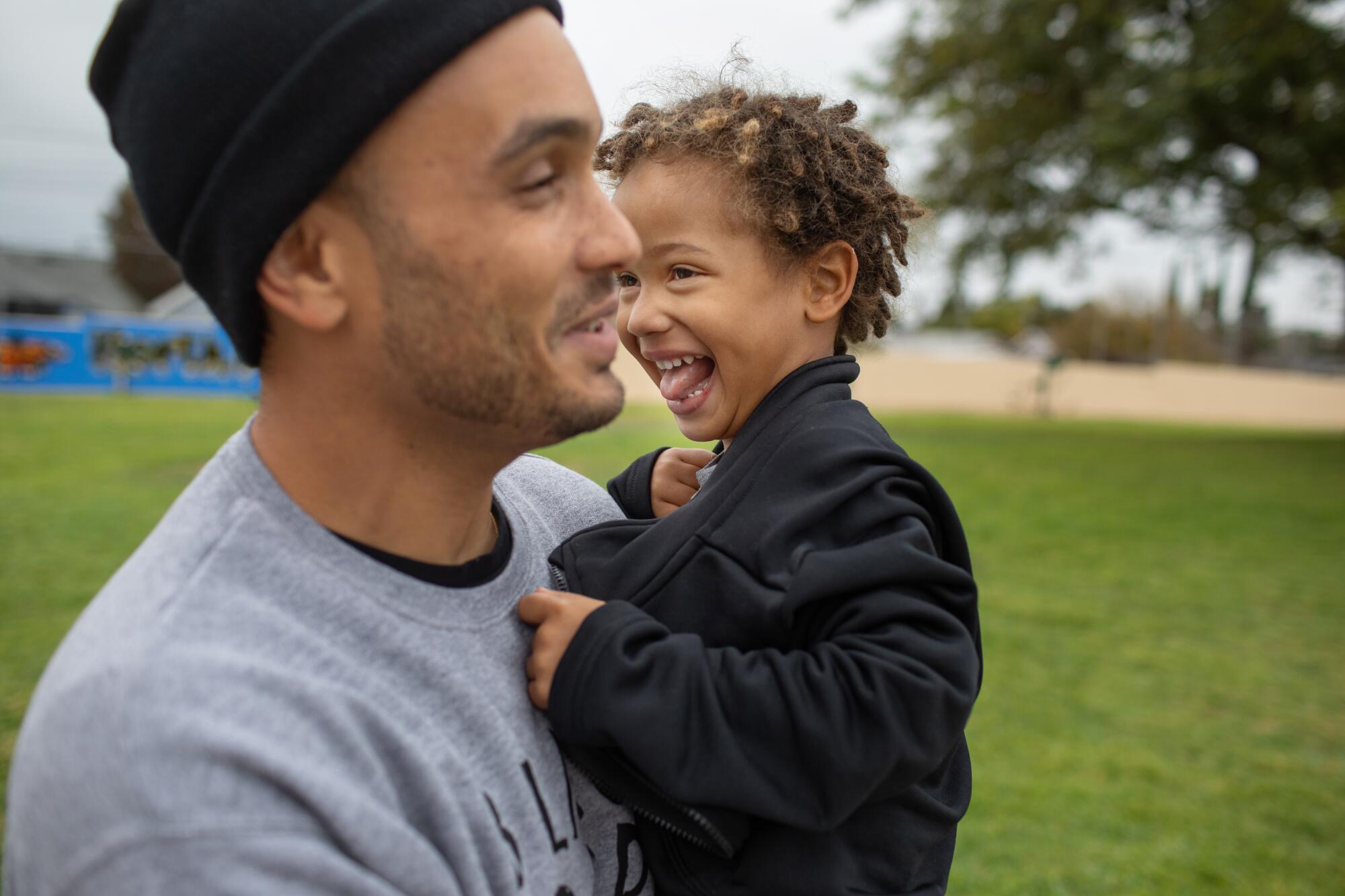
Without his biological father in his life, and feeling emotionally abandoned by his stepfather, Brown acted out and became depressed.
This reaction is not a unique experience to Brown but rather something many Black boys experience, too young to understand how structural racism tears at their father’s psyche, experts said.
Psychologist Earl Turner, an associate professor at Pepperdine University, sees this dynamic play out in the Weight Room, a virtual program that gives Black boys a safe environment to work with a therapist. Turner helps the boys navigate challenges in their life, letting them know they don’t have to carry the weight of their emotions by themselves.
“Oftentimes as Black men, we are expected to do many things and to take care of our own feelings and not give that to somebody else,” Turner said. “But we know it’s helpful to have that space to be able to do that.”
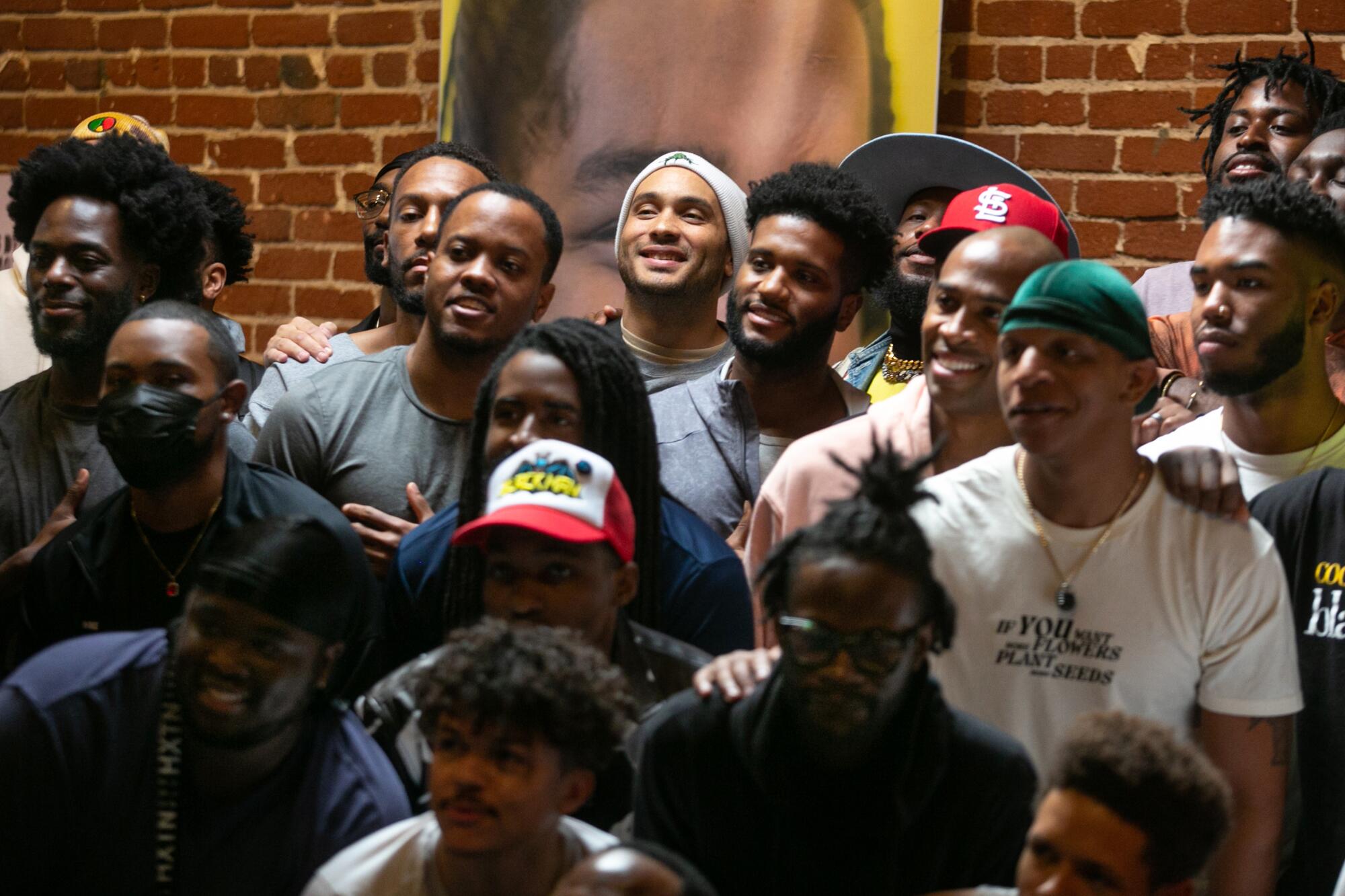
When Brown started working in finance in his 20s, he realized the stress his dad faced.
Like his stepfather, Brown was the only Black person in his office. It was the early 2000s, and Brown did not acquiesce to his mostly white office’s professional and beauty standards: He had tattoos, long hair, and at one point, dreadlocks.
Even though he performed well, it was impossible to get a raise, he said.
While taking time off to welcome his first child, Brown determined his appearance was blocking him from advancing at work. He knew he had to conform.
Two weeks after getting a haircut, he got the raise.
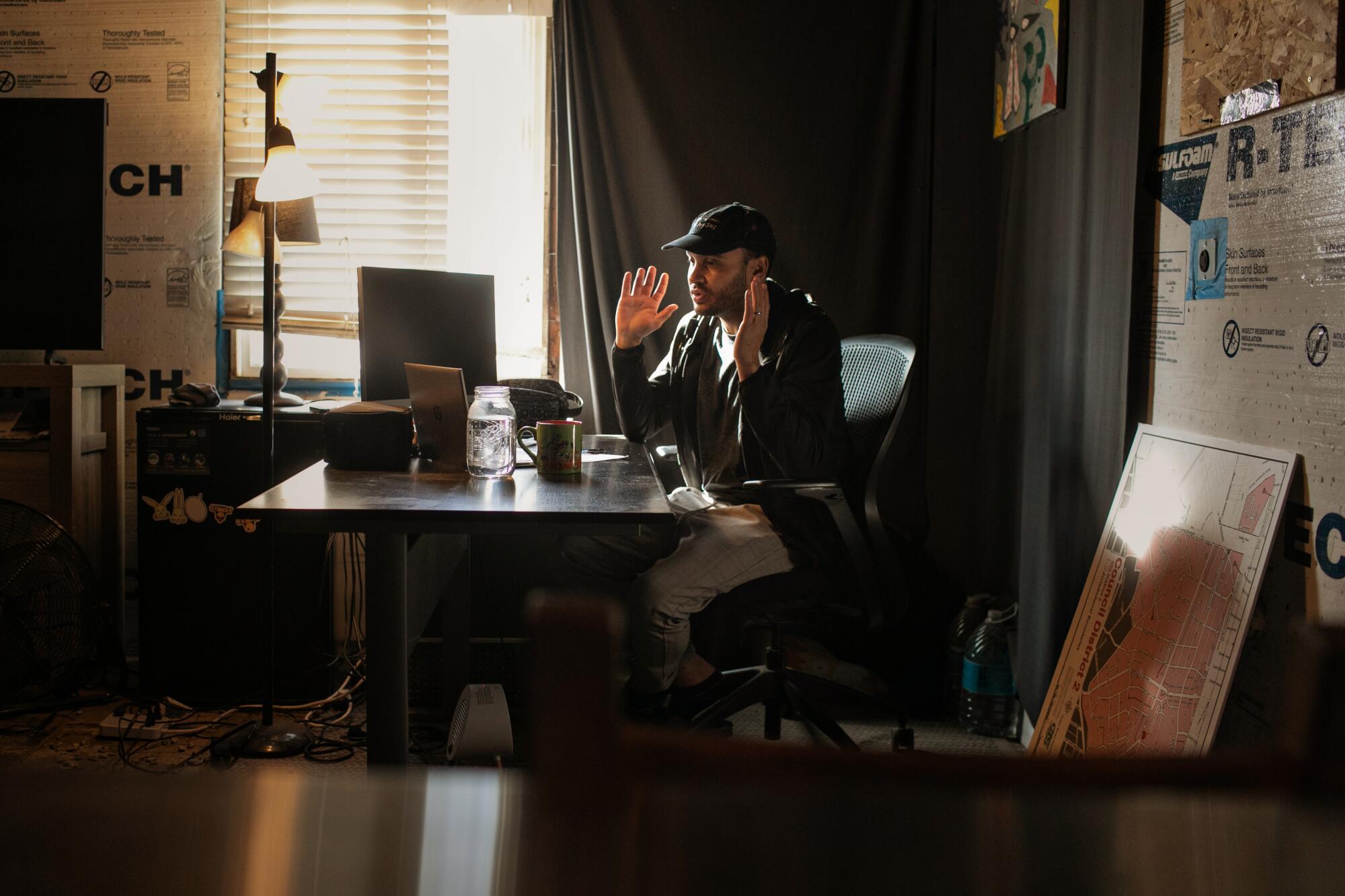
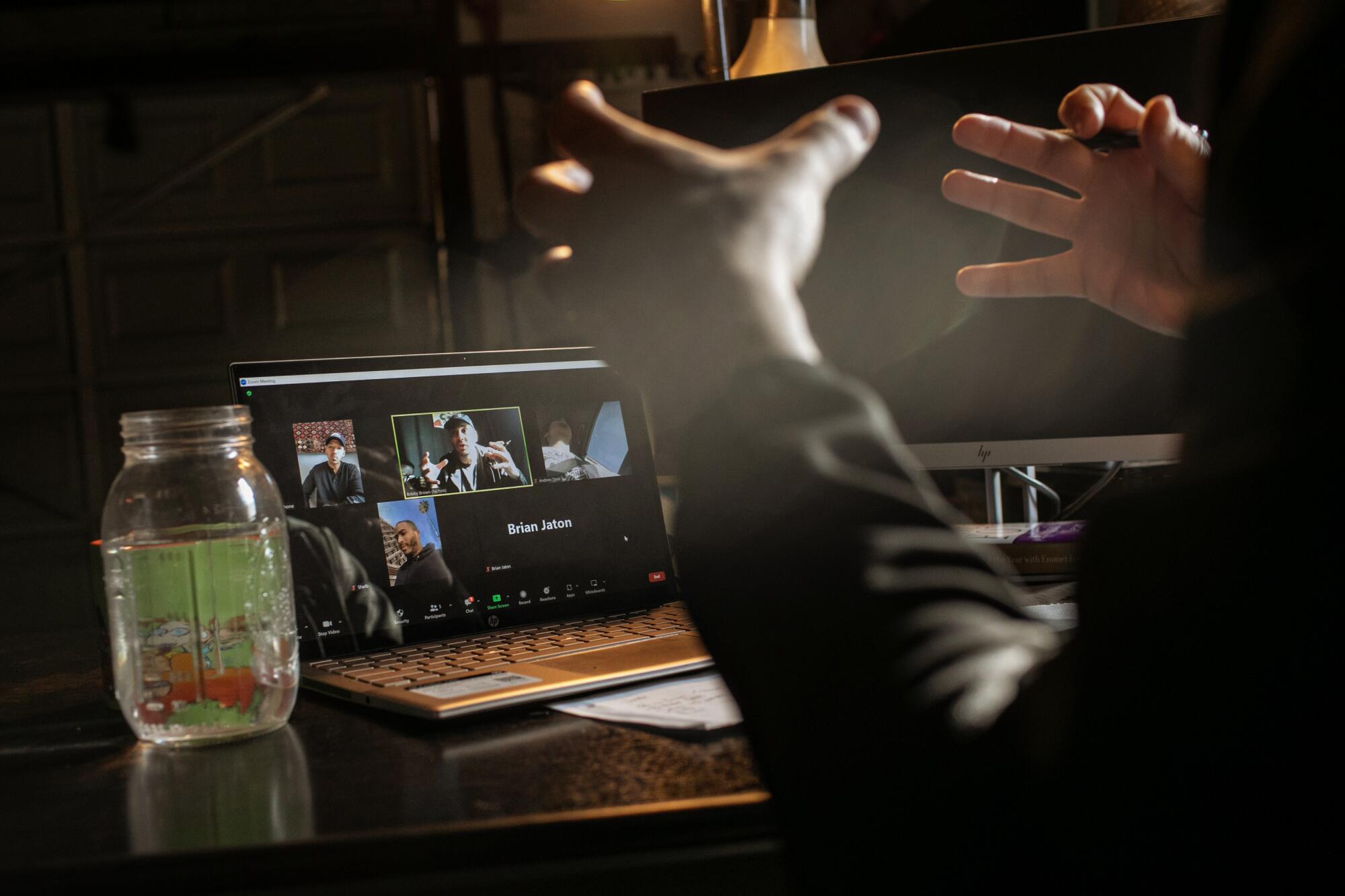
As a new father, Brown stopped prioritizing things like self-expression that made him happy. Like his stepfather, his main goal was to provide for his family and survive.
Survival mode worked — until 2017, when Brown learned he and his wife were expecting twin girls.
“That kind of softened me up and made me really focus on my heart chakra,” he recalled.
Brown knew people with heart chakra blocks often put others first to their detriment, and he worried about how that would affect his growing family, he said.
Six years later, Brown and his wife, Yhanni, have four children, Judah, Nali, Echo and Amanu, whom they’re teaching the same mental health tools they’ve both learned in their healing journeys.
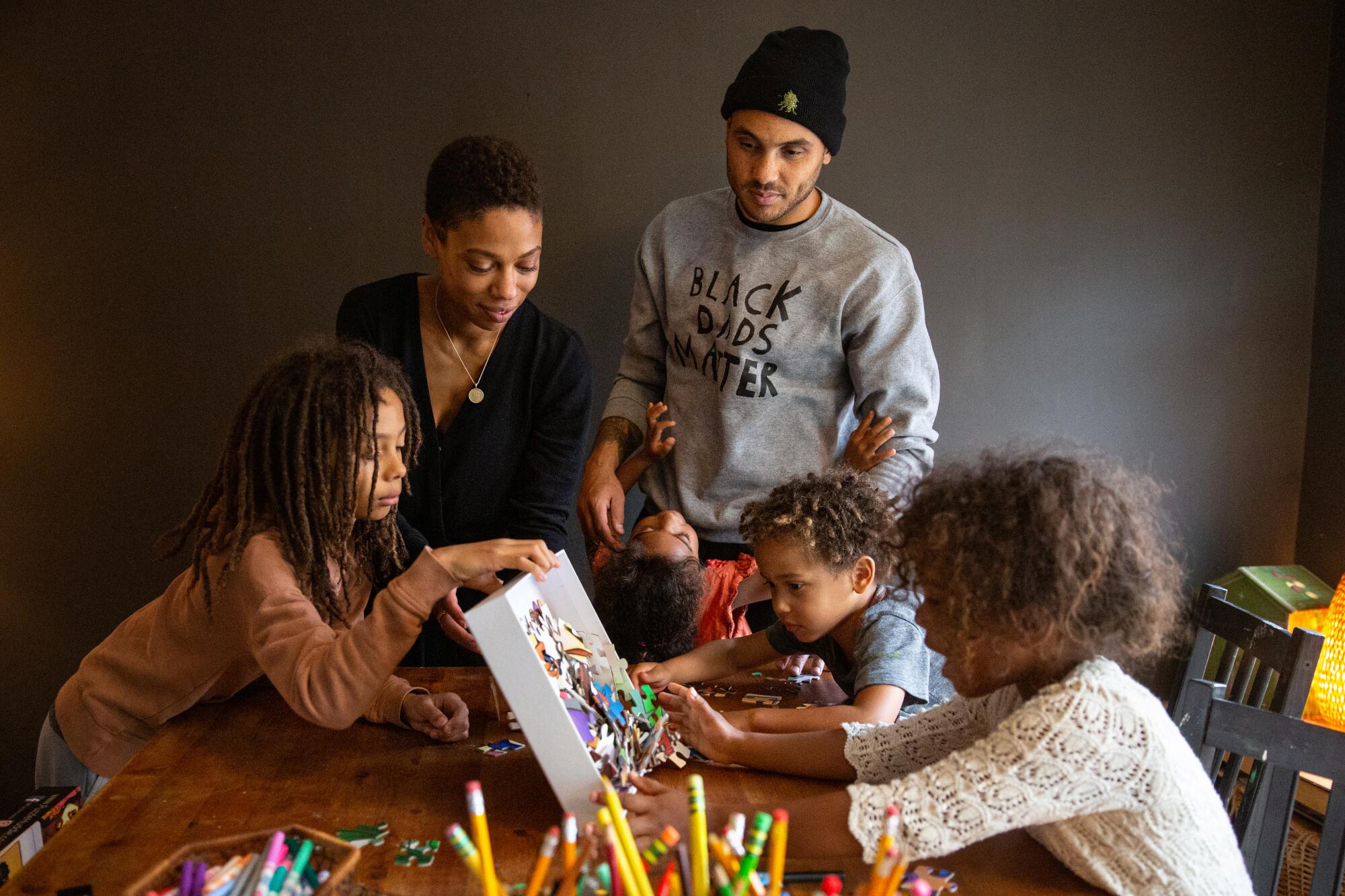
On a recent Friday at their home in Inglewood, Brown and Yhanni wrangled their children into their dining room for an activity.
Filled with art supplies, the Browns’ dining table doubles as a home-schooling classroom.
Judah, the oldest child, selected a 200-piece puzzle of a painting by an aspiring young Black artist and dumped it on the table.
“I don’t want to do a puzzle!” 3-year-old Amanu exclaimed.
Brown and his wife gingerly encouraged all their children to participate. Eventually, everyone was searching through the sea of puzzle pieces.
“We are very conscious and intentional in the way that we speak to our children,” Brown said. “We do a lot of quote-unquote gentle parenting.”
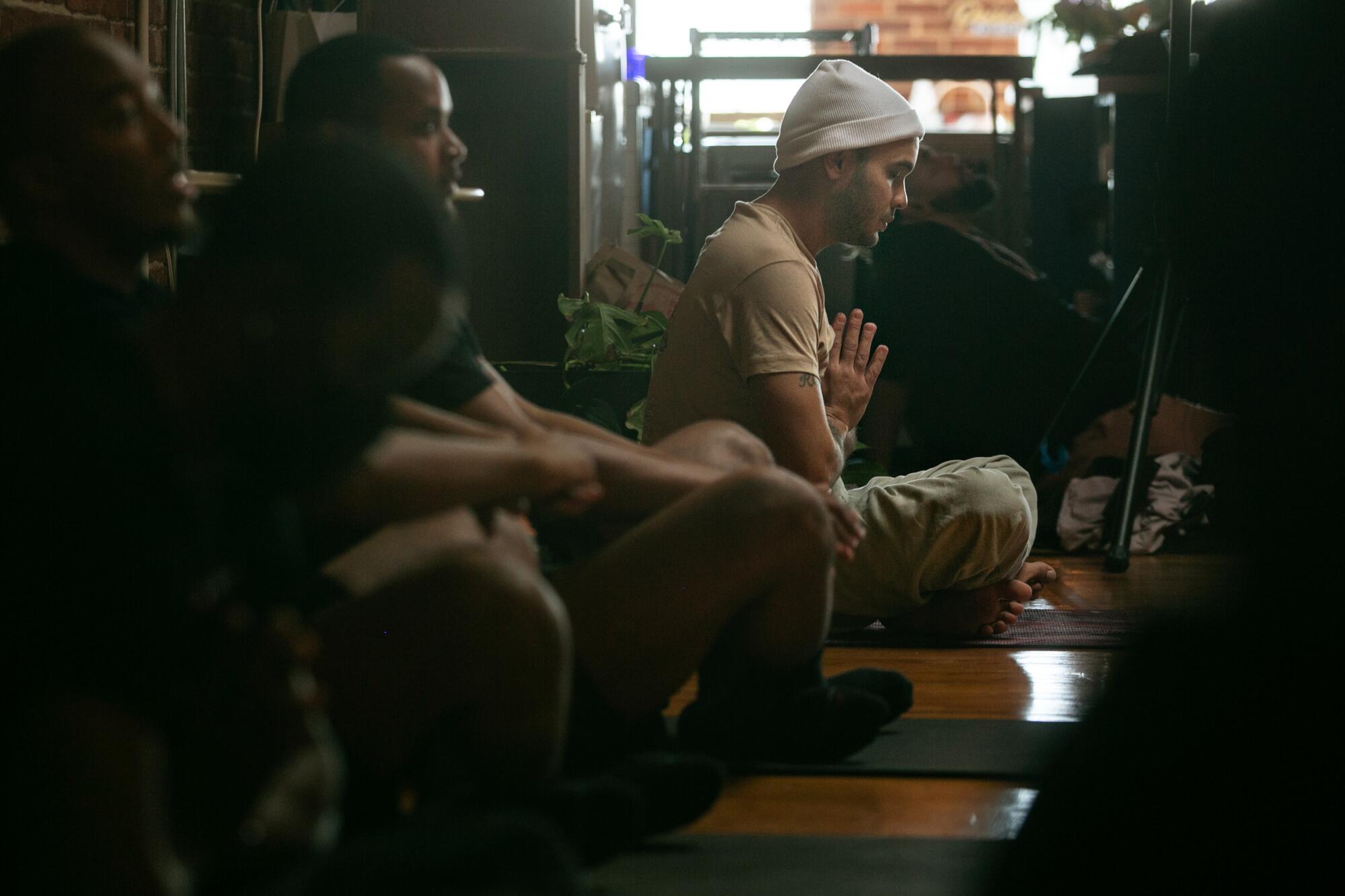
In addition to teaching reading, writing, math and science, Brown and his wife educate their kids on the importance of mindfulness and meditation. Equipping their children with the tools that helped them heal and become better parents is paying off.
“They are confident in the way they walk, the way they talk and in the way they express themselves,” Brown said.
“It’s so different from how I was raised,” Brown added. “That is no fault of my parents, they weren’t equipped with the tools.”
He recalled never being able to truly speak up and have his own voice as a child.
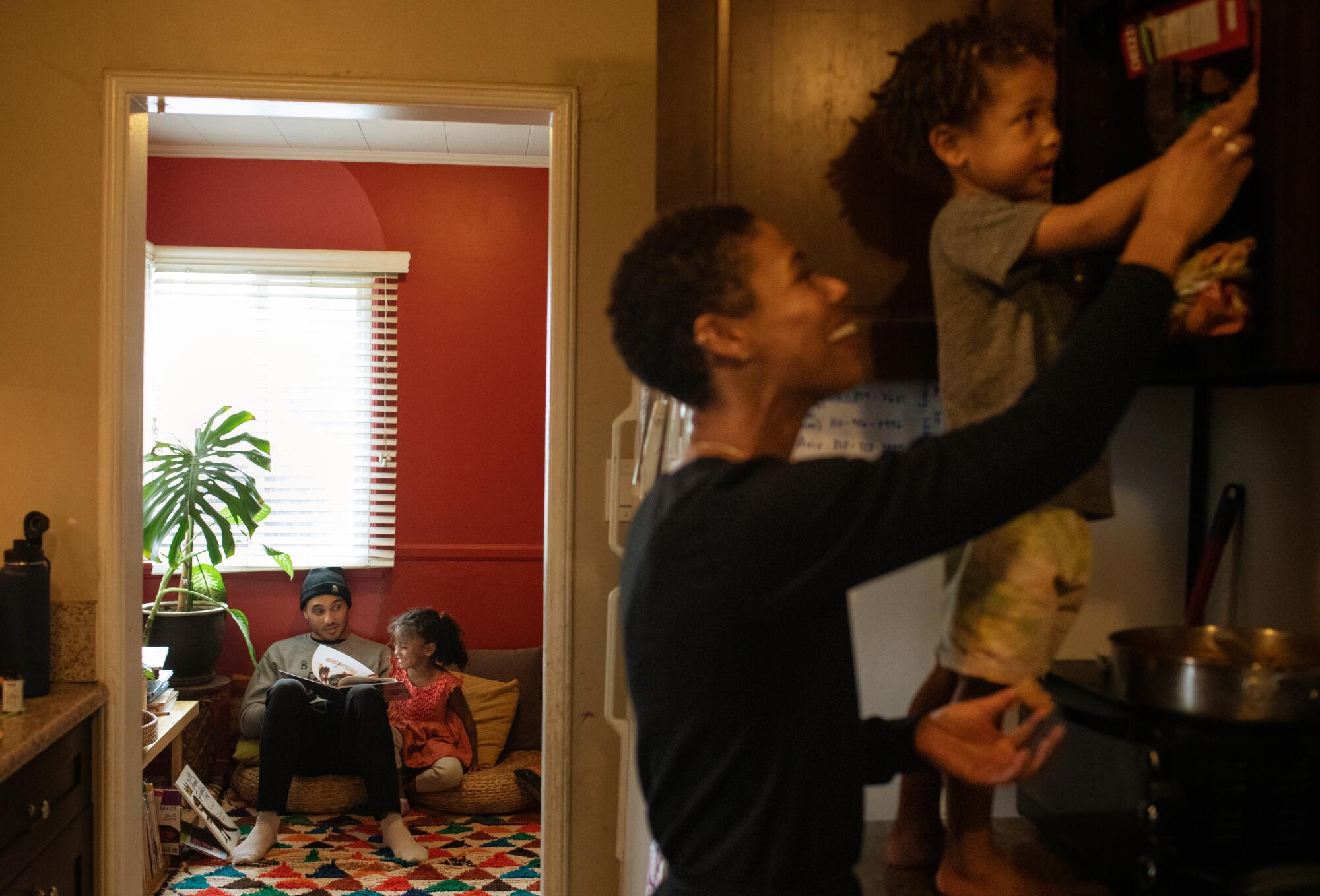
“It was ‘Go do this, go do that, because that’s what I said,’” Brown said.
Brown and Yhanni regularly communicate with their children about the value of self-care.
Their children recognize that their parents practice self-care together, by going on dates, so that they can focus on each other, stay united, healthy and loving. And be better parents.
The children, ranging from ages 3 to 10, also understand how important it is for Mom and Dad to individually practice self-care.
“Mom needs to go give herself what she needs so she can come back, be more present and be better for us,” Brown said. “Daddy needs to go do self-care alone because [with everything] he pours into us, his glass is empty, and [he] needs to refill it so he can continue to pour into us.”
A crucial part of Brown’s self-care is the support he’s found in other Black fathers.
Six years ago, noticing how beneficial mothers’ support groups had been for Yhanni, Brown sought out similar groups for Black fathers — and quickly realized essentially none existed. He lamented that to his mother-in-law, who encouraged him to create his own group.
In 2019, Brown launched Donuts With Dads.
The group meets regularly, sometimes in parks with their children in tow, but lately, because of the COVID-19 pandemic, mostly virtually.
Over the years, the fathers have built a tight bond. Their time together serves as a safe space where they can lean on each other for support.
“When we live in the emptiness, it’s almost impossible to realize the joy and beauty of life because we’re running on fumes and not honoring ourselves,” Brown said of the group. “Self-care is our way to fight back. Self-care is our revolution.”
In mid-February, 10 of the dads, sans doughnuts, trekked out to the California desert for a weekend retreat in Yucca Valley.
On that Sunday morning, Brown lay shirtless in deep meditation among the other fathers on the floor of the Moroccan-themed room.
Kundalini yoga instructor Brandon Holman, also a member of the dads’ group, walked around the room chiming his tingsha. The clear, high-pitched tone of the small cymbals reverberated around the small sunroom.
Similar to other Black men, Holman had been reluctant to seek help for his struggles.
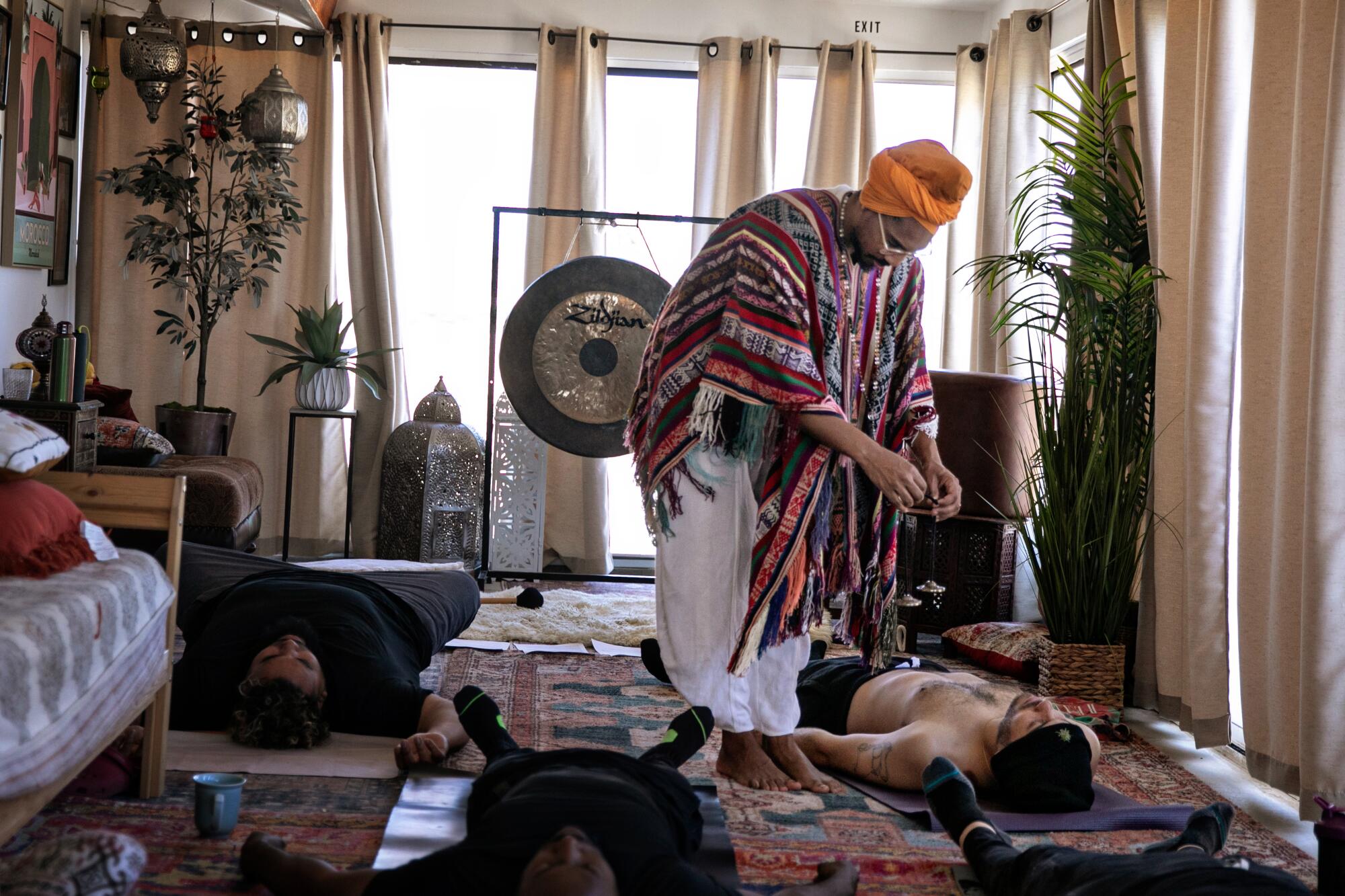

“I think that resistance lies in the ego,” said Holman, who lives in Los Angeles with his wife and 3-year-old son. “This conditioning that as a man you need to be strong, you feel like you’re gonna be judged by other men.”
Part of the hesitation, researchers have found, is rooted in decades of structural racism.
Black people have always been hesitant, out of necessity, to seek self-care and mental health treatment, said Nakeya Fields, a licensed clinical social worker and chair of the Pasadena-based Black Mental Health Task Force.
“In my opinion, we always have to show up a certain way, but we don’t show up for ourselves. We don’t have time to have insight and self-awareness into what we need, what our body needs,” Fields said. “We’re not even aware sometimes because we’re so highly stressed and we have to perform. We not only have to perform in our job to make ends meet, we have to perform for other people so that we can seem like the right type of Black person.”
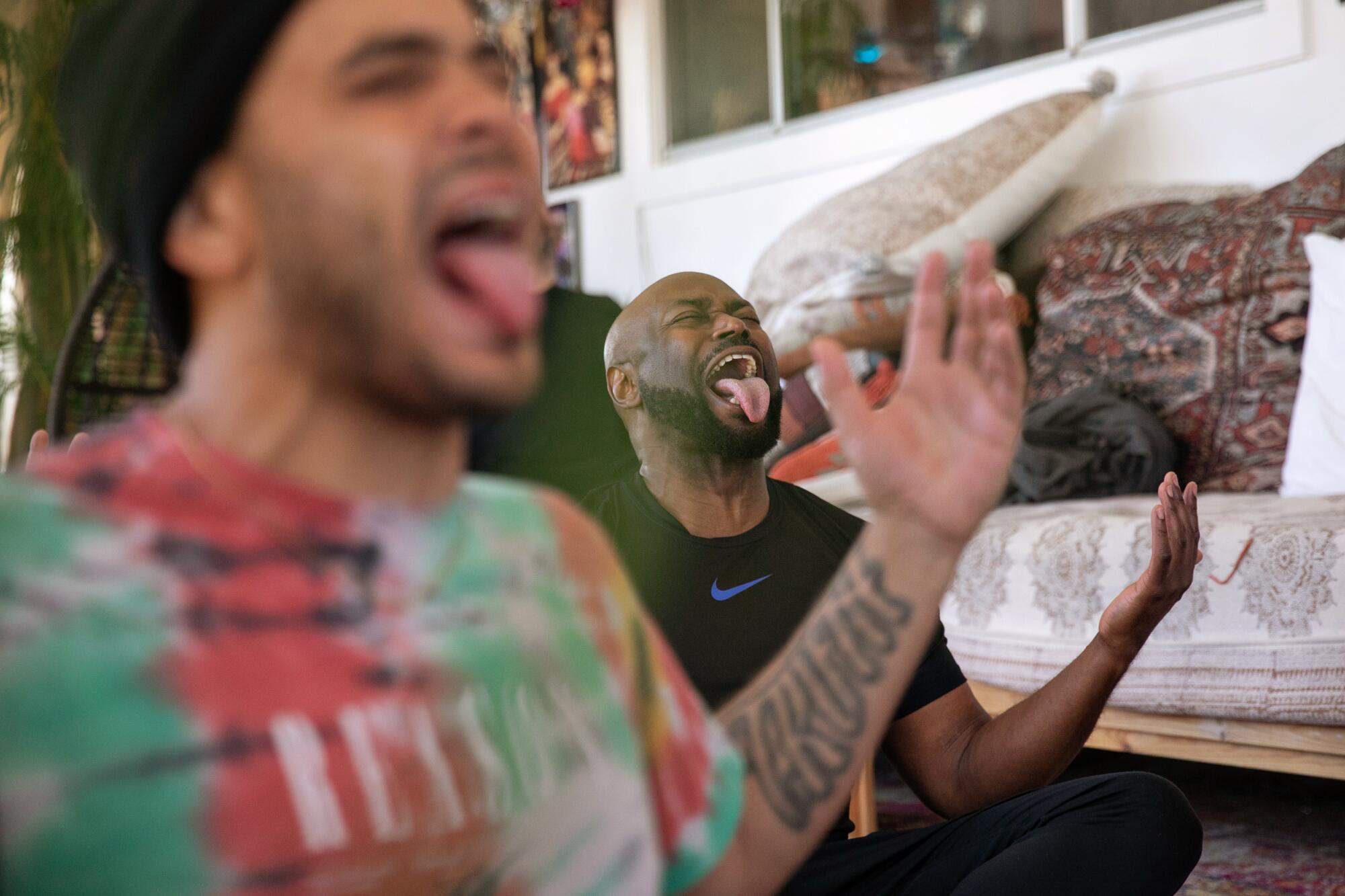
Programs administered by the government, such as the Tuskegee syphilis experiment and forced sterilization driven by racism and eugenics, have contributed to many Black people’s skepticism and distrust toward the healthcare system, Fields said.
“We have a history of people using our bodies, lying to us and taking surveys of us for the data, but not truly intending to provide a service,” Fields said.
Experts point to the low number of Black mental health care providers as another example of structural racism.
Black people make up only 2% of the estimated 41,000 psychiatrists in the U.S and 4% of the psychologists, according to the American Psychiatric and American Psychological associations, respectively.
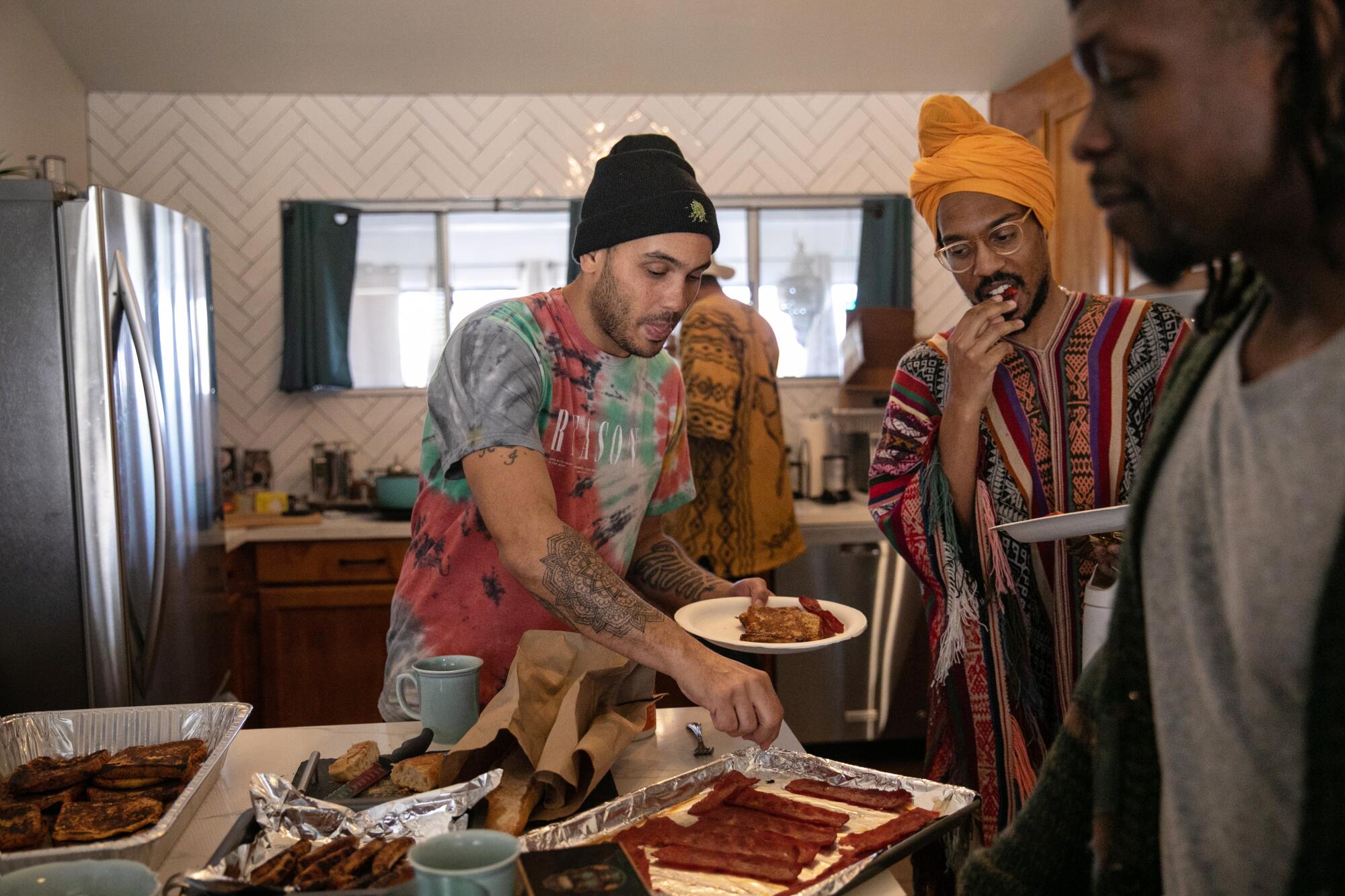
The arduous search for a Black mental health provider causes a large number of Black people to cut short their pursuit of healing.
More than 3 in 4 Black Californians say it is extremely important or very important to increase Black representation among healthcare leaders and providers, a recent survey by the California Health Care Foundation found.
The survey also found that nearly 1 in 3 respondents had been treated unfairly or with disrespect by a healthcare provider because of their race or ethnicity.
Despite these factors, surveyors discovered Black Californians are highly intentional in their pursuit of physical and mental health, with 79% reporting they focus on their mental health. It wasn’t that Black people weren’t seeking out mental health care — it was that they faced continual barriers to receive it.
Fields said many Black people feel a disconnect when receiving mental health services from non-Black providers.
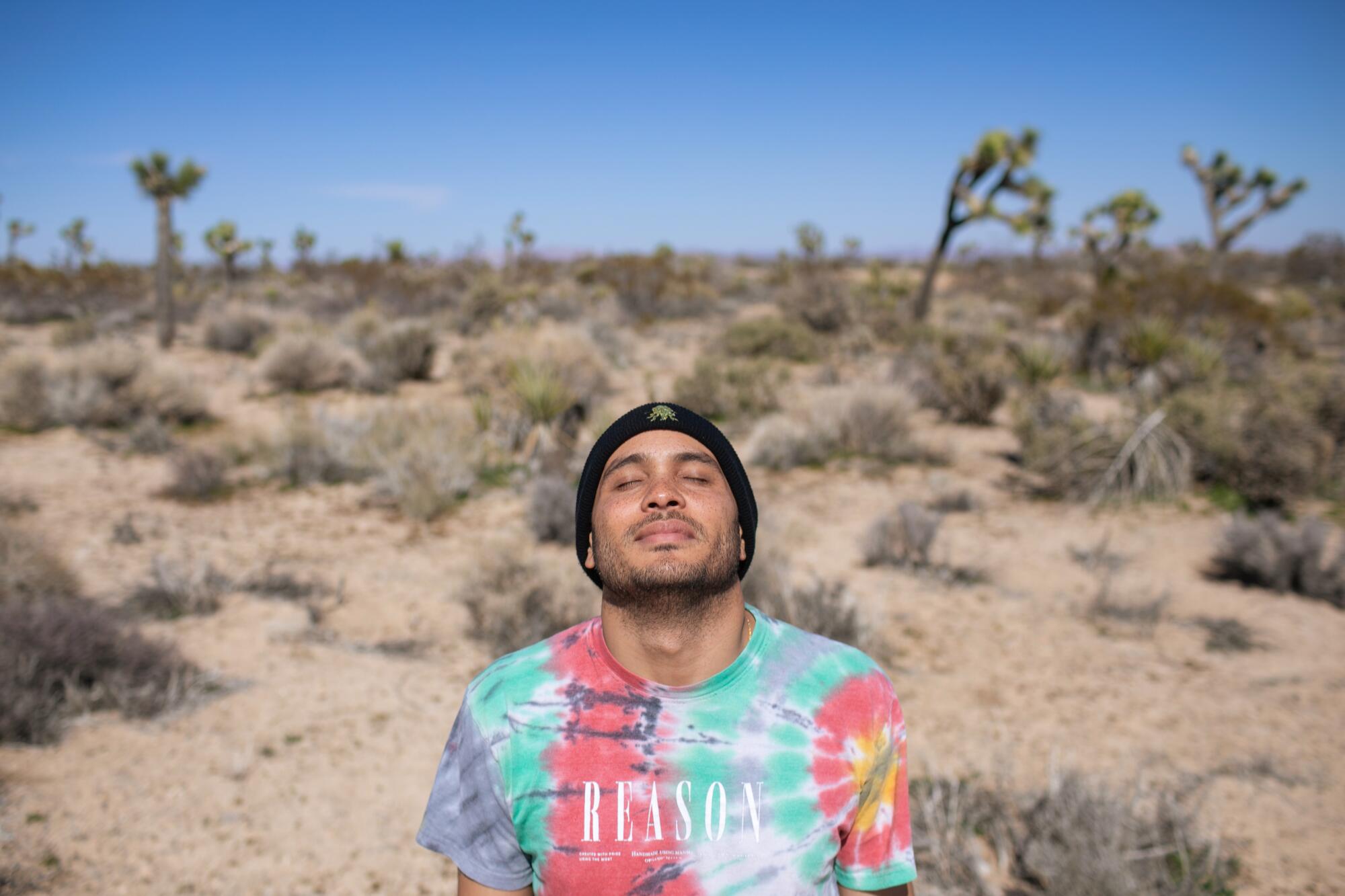
“It’s going to take a Black person to talk to a Black person about healing, from our Black experience,” Fields said. “Nobody outside of us can do that. We would never trust it.”
Even with Brown being a Black man, he had to earn the other men’s trust.
Brown’s biggest struggle when he first started the Donuts With Dads support group was finding other fathers who were interested. Brown had a clear vision for the group and knew it could become a valuable form of healing for Black fathers.
Over the years, the camaraderie and positive energy between the dads has opened them up to a certain level of vulnerability. This brotherhood now feels free to be authentic together, which has allowed them all to grow.
“It takes a village not just to raise our children,” Brown said. “It also takes a village to grow into ourselves.”
Brown is thankful his group has equipped him and many other fathers with the tools to connect in ways he wishes his own stepfather could have. The group is a small but mighty force against all that they face in their day-to-day lives.
Back at the retreat, the dads take long deep breaths, strengthening their aura and field of radiance during their final meditation of the morning.
The men are instructed to imagine a bright circle of light encasing them, projected from the crown of their heads.
“This is your aura, this is your force field. When our field is strong, it can protect us. When it is strong, it establishes our sense of domain,” Holman said.
With their eyes closed and in unison, the group chanted “Sat Nam,” a mantra acknowledging the true nature and true identity within the person.
As they slowly came back into their bodies, the instructor thanks everyone for showing up and doing the work.
“Let’s remember this experience when we need to push through,” Holman said, “gathering the courage to walk the life we want, to take care of our families, take care of our communities, to take care of our brothers and sisters. Thank you.”
The dads respond together, “Thank you, namaste.”
This article was published with support from the Solutions Journalism Network through its Health Equity Initiative.
More to Read
Sign up for Essential California
The most important California stories and recommendations in your inbox every morning.
You may occasionally receive promotional content from the Los Angeles Times.



